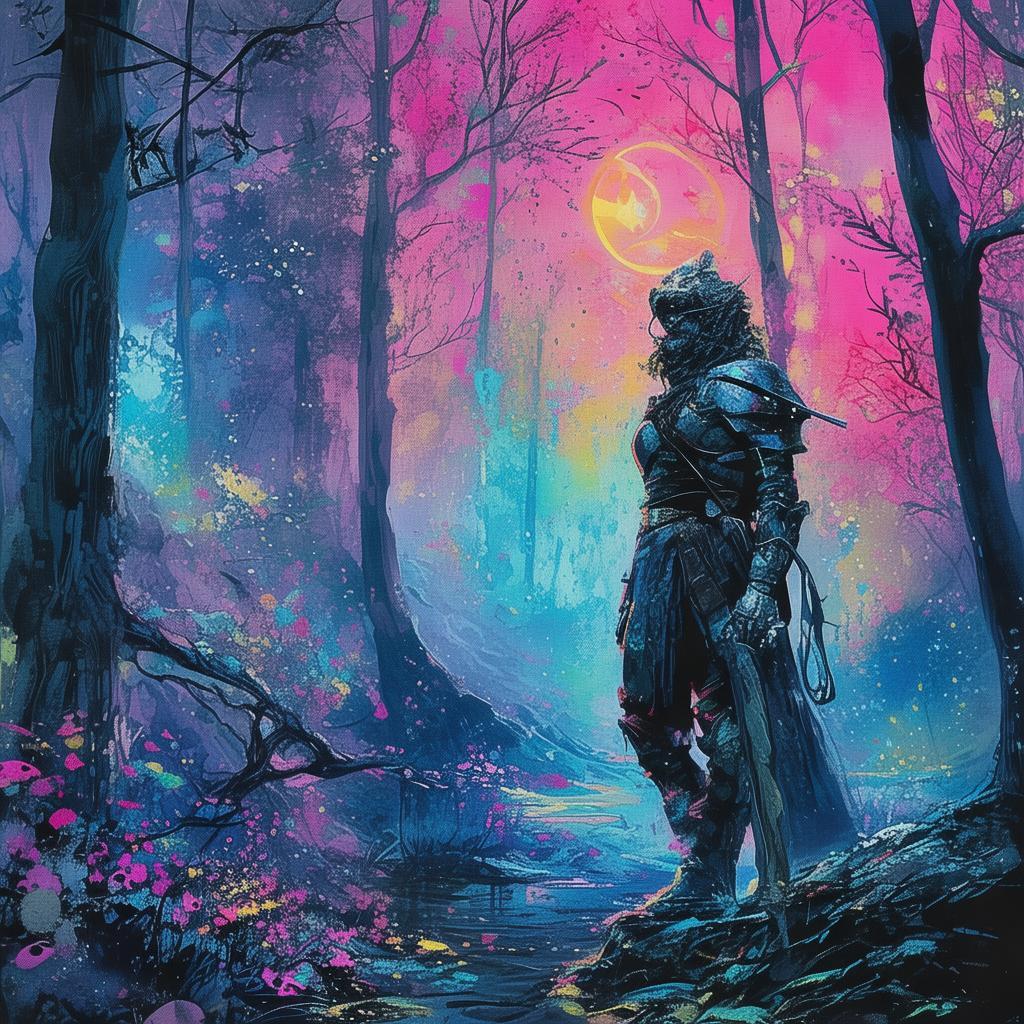The Echoes of Oblivion: The Resurrection of Symphony No. 13
In the heart of an old, ivy-covered mansion, nestled in the forgotten corners of a quaint village, lay a dusty, leather-bound manuscript. It was a symphony, Symphony No. 13, the last work of a composer whose name had faded into obscurity, like the melodies he once composed. The manuscript had been found by chance, in the attic of a decrepit library, by a young musicologist named Elara. Her fingers traced the intricate notes, and as she played a few bars, she was struck by a haunting beauty that seemed to resonate with her soul.
Elara's fascination with the symphony grew with each passing day. She delved into the composer's biography, uncovering snippets of a life marred by tragedy and solitude. The composer, named Adrien, had been a prodigy, his music adored by all, until a series of personal disasters left him broken and silent. The symphony, it was said, was his final, unspoken plea to the world, a testament to his love for music and the longing for connection he felt in his final moments.
As Elara became more immersed in the music, she began to experience strange sensations. The notes seemed to come alive, whispering secrets that she could not comprehend. She found herself drawn to the mansion, as if it were calling her. There, in the quietude of the composer's study, she discovered a hidden chamber, accessible only through a series of cryptic clues encoded in the music itself.
Inside the chamber, Elara found a collection of old letters and a final, unfinished symphony. The letters revealed the story of Adrien's final days, filled with sorrow and a desperate need to share his final creation with the world. It was then that she realized the symphony was not just a piece of music; it was a key to a world that had been hidden from view for centuries.
The symphony, it turned out, was a map, guiding Elara through the labyrinthine history of the composer's life. Each movement, each melody, held a piece of his story, a glimpse into the heart of a man who had loved deeply and lost everything. Elara followed the symphony's lead, uncovering hidden passages and forgotten places, each step taking her closer to the truth.
As she journeyed deeper into the composer's life, Elara began to see the world through Adrien's eyes. She felt the weight of his sorrow, the pain of his loneliness, and the beauty of his love. The symphony became more than just a musical composition; it was a bridge between two worlds, connecting the past to the present.
One evening, as the moon hung low in the sky, Elara played the final movement of Symphony No. 13. The music filled the chamber, echoing through the walls, and for a moment, the room seemed to glow with an otherworldly light. As the final note resonated, Elara felt a presence, a figure standing before her, cloaked in shadows.

It was Adrien, the composer himself, come to life through the music he had left behind. He smiled gently, his eyes filled with gratitude. "You have brought my music back to the world," he said. "You have heard my story, and in doing so, you have brought me peace."
With a final, loving glance, Adrien faded away, leaving Elara standing alone in the chamber. The symphony ended, but its echoes lingered in her heart. She knew that the journey she had embarked upon was far from over. The symphony had opened a door to a world of possibilities, and Elara was determined to explore it fully.
The following days were a whirlwind of discovery. Elara traveled to places she had never imagined, meeting people who had been touched by the music of Symphony No. 13. She learned of the composer's influence on the world, his music having inspired countless lives. And as she shared the symphony with others, she felt a sense of fulfillment that she had never known before.
The story of Symphony No. 13 became a legend, a tale of love, loss, and redemption. Elara's journey, once a quest to uncover the secrets of a forgotten composer, had transformed into a journey of self-discovery. She had found her purpose, and in doing so, she had brought a piece of the past to life in the present.
The Echoes of Oblivion: The Resurrection of Symphony No. 13 was more than a story; it was a reminder that music, in all its forms, has the power to transcend time and space, touching hearts and souls across generations.
✨ Original Statement ✨
All articles published on this website (including but not limited to text, images, videos, and other content) are original or authorized for reposting and are protected by relevant laws. Without the explicit written permission of this website, no individual or organization may copy, modify, repost, or use the content for commercial purposes.
If you need to quote or cooperate, please contact this site for authorization. We reserve the right to pursue legal responsibility for any unauthorized use.
Hereby declared.









